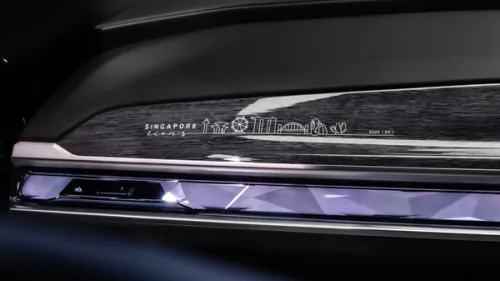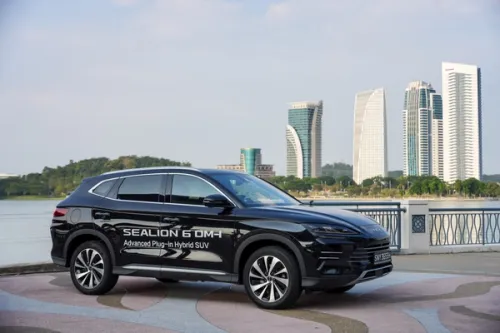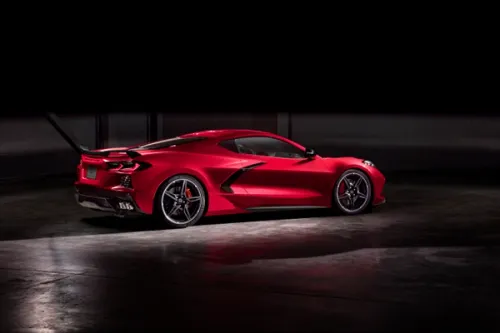Green Focus: Green Cars in 2011
2011 promises to be an exciting one for green cars. Car buyers will have more choice than ever before as several major manufacturers launch high quality, fully electric models but hybrids will steal some limelight as well.

2011 promises to be an exciting one for green cars. Car buyers will have more choice than ever before as several major manufacturers launch high quality, fully electric models.
However, not all the focus will be on pure electric vehicles, as several new hybrid models will also make their way to the showrooms. While petrol hybrids have been available for over a decade, 2011 will see the world’s first diesel hybrid come to market, which offer even better fuel economy than existing petrol hybrid technologies.
As noted by Dr Ben Lane, Managing Editor of Next Green Car: "Not only are high quality fully electric models now a real option for car buyers, even more drivers will find their motoring needs met by a hybrid, or by a plug-in hybrid which offers the ultimate combination of conventional and electric drive-trains. The best news is that all these options improve the driving experience, reduce running costs and lower emissions."
To mark a year which will bring many technologically ground breaking models to the showrooms, the following 'Top 10' list highlights some of the most important models across all vehicle classes due for launch in 2011.
While we usually provide a Green Car Rating for all models listed, as most of the cars listed have yet to be launched, only published CO2 emissions are available. Models are therefore rated using tailpipe CO2 and are listed in order of increasing CO2 emissions.
Peugeot iOn & Citroen C-Zero - CO2: 0 g/km - Green Car Rating 10
PSA Peugeot-Citroen has partnered with Mitsubishi to produce two French incarnations of the all-electric Mitsubishi i-MiEV. Like other battery electric models to be released this year, these will be proper 4-seater cars, as opposed to quadricycles (like the G-Wiz). The iOn and C-Zero use a 64 bhp electric motor that enables the vehicle to accelerate to 62mph in 16 seconds and reach a top speed of 80mph. Using a three pin domestic plug, a full recharge will take 7 hours, or a rapid charger can be used to recharge by 80% capacity in just 30 minutes; the full battery range is 93 miles. Both models are initially for lease only, but aimed at both the private market and business fleets.
Nissan LEAF electric - CO2: 0 g/km - Green Car Rating 14
The much talked about Nissan LEAF is the world's first zero-emission medium-size hatchback that comfortably seats five adults and has a range of 80-100 miles. The car is powered by lithium-ion batteries, which via its electric motor, deliver over 80kW to the drive wheels. The LEAF can be charged up to 80% of its full capacity in just under 30 minutes with a quick charger, or at home with a standard socket takes 8 hours. Having already received huge media attention, and being awarded the 2011 European Car of the Year, almost 30,000 have been pre-ordered, and pre-registration for the LEAF has been popular in the UK. And yes, the LEAF qualifies for the Plug-in Car Grant.
Renault Clio eco-champion – CO2: 90 g/km
In addition to Renault’s existing eco2 range, 2011 will see the lowest CO2 models awarded as ‘eco-champions’ - these include the Twingo (90g CO2/km), Clio (90g CO2/km), Megane (106g CO2/km), Laguna (120g CO2/km) and the Scenic (130g CO2/km). The Clio, which has the most impressive emissions given its size, uses a DCi 90PS diesel engine with particulate filter and, along with the rest of the eco-champion models, incorporates Renault’s new EDC (Efficient Dual Clutch) gearbox.
Lexus CT 200h hybrid - CO2: 96 g/km
Lexus’ launch of the CT 200h petrol-electric hybrid into the prestige small-family car segment is a significant first (most hybrids have tended to be larger models). The all-new hatchback will be among the best in its class, with ultra-low NOx and particulate emissions, and CO2 emissions of only 96g/km. The drive-train used by the CT 200h is essentially the same as that used in Toyota’s Prius - one that has proven to be highly reliable. Low emissions and a high combined fuel economy figure of 68.9mpg mean that the car is zero-rated for road tax and has a company car BIK rate of just 10%.
Peugeot 3008 HYbrid4 - CO2: 99 g/km
The Peugeot 3008 HYbrid4, the world’s first diesel-electric hybrid, offers a fusion of vehicle classes, with SUV, MPV and hatchback attributes. The 2.0 HDi diesel engine produces an output of 163bhp; 200bhp combined with the electric motor. Considering the size and weight of the vehicle, fuel economy figures of 74.4mpg and CO2 emissions of just 99g/km are impressive. The two power sources can operate alternately or simultaneously, allowing electric-only mode. The electric motor powers the rear wheels, and the diesel engine powers the front; both function together in 4WD if required.
Honda Jazz hybrid - CO2: 104 g/km
The existing Jazz model is to be fitted with the 1.3 petrol-electric IMA hybrid power-train that currently features in Honda’s CR-Z and Insight hybrid models. The popular supermini will then be equipped with a 4-cylinder engine and an electric motor that will together produce 87bhp and allow acceleration from 0-60mph in 12.1 seconds with a top speed of 109mph. Bettering the cleanest existing Jazz by 21g/km, the hybrid version will emit only 104g CO2/km, and fuel consumption will be around 62mpg. Perhaps Honda could have done a bit better as the CO2 figure does not reach the ‘magic’ sub-100g/km level.
Ford Focus - CO2: 109 g/km
Although electric and hybrid options feature highly in this year’s list, greener conventional models continue to be available and include all-new version of Ford’s most popular UK car, the Ford Focus. The new Focus line-up includes a wide range of engine and model variants, including three petrol and four diesel engines, with the inclusion of impressive technological equipment on some models. The 1.6 150PS EcoBoost engine and 1.6 115PS TDCi engines both include start-stop as standard, and are the greenest versions of petrol and diesel engines respectively - the latter is the lowest CO2 emitting in the entire range with a figure of only 109g/km, and the one to watch. However, all power-trains achieve less than 140g/km.
Volkswagen Jetta - CO2: 109 g/km
Volkswagen is to bring an all-new Jetta saloon to the UK; a model that is currently available in the US but will be tweaked for the UK market. There will be a choice from a total of six turbocharged engines, four petrol and two diesel options. BlueMotion technology will be introduced for two of the engine options, the 1.2 litre petrol and 1.6 litre diesel - both of which use stop-start technology. The Jetta with the greenest credentials is the BlueMotion 1.6 TDI (103bhp) litre diesel variant, which delivers 68.9mpg and just 109g CO2/km - impressive for a car of its size.
Audi A6 - CO2: 129 g/km
An all-new Audi A6 will be available in the UK in 2011, having received a number of improvements to increase efficiency. The most outstanding is the degree of weight reduction that Audi has achieved - composite aluminium and steel construction mean that the 2.0 TDI model weighs just 1,575kg, a 15% reduction from the original model. The new range will offer choice of one petrol and three diesel engines - the 2.0 TDI (177 PS) manual is the most efficient, capable of 0-62mph in 8.7 seconds and a top speed of 142mph whilst emitting just 129 gCO2/km. Other than the impressive light-weighting, electric power steering and wider gear ratio spreading has been applied across the range. For its executive image and vehicle class, the new A6 is likely to be popular in both the private and business fleet markets.
Range Rover Evoque - CO2: <130 g/km
At Next Green Car we do not generally recommend SUVs for the obvious green reasons, but if you really must have one (really!) then we suggest you check out the all-new Range Rover Evoque. This model is set to be Land Rover’s cleanest, most efficient model yet, with CO2 emissions from under 130g/km on the diesel 150PS version. The Evoque will be available as either 2WD or 4WD with several engine options, all with start-stop technology as standard - a 2.0 petrol (240PS), and two 2.2 diesels (150 and 190 PS) - the 150PS diesel being the most fuel efficient in the range. Land Rover has achieved the improvements in fuel consumption and lower emissions largely by using lightweight materials such as aluminium, magnesium, titanium and recycled plastics.
Credits: wilswong


Get the Best Price for your used car
from 500+ dealers in 24 hours

- Convenient and Hassle-Free
- Consumer Protection
Transparent Process
With No Obligation








